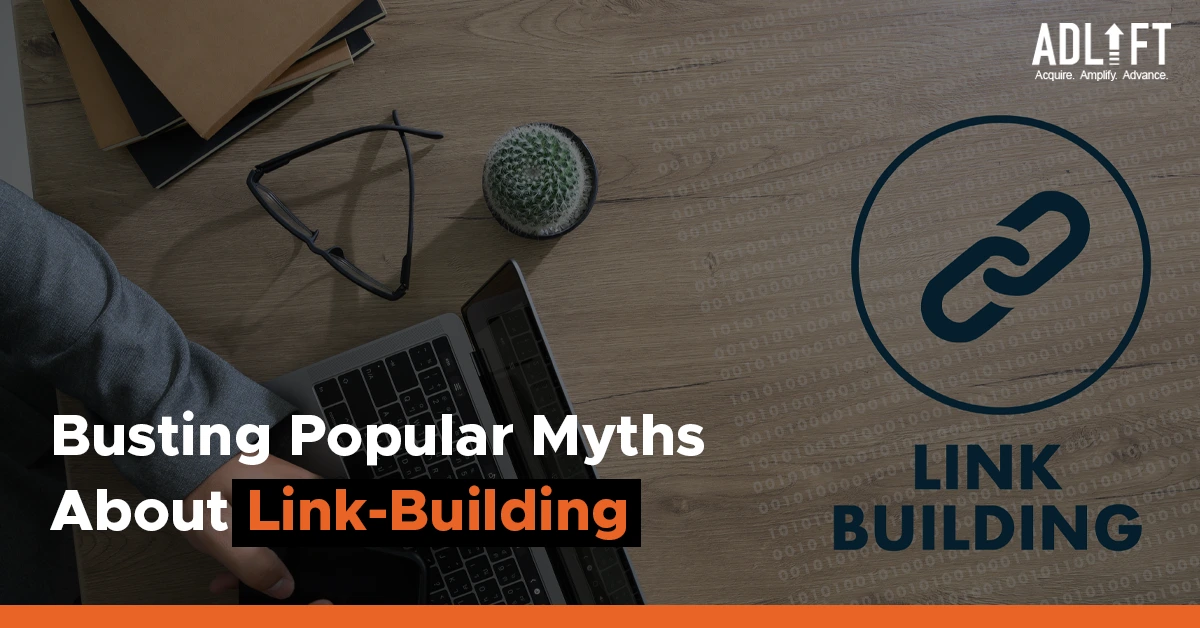Busting Popular Myths and Misunderstandings About Link-Building

In the ever-evolving world of SEO, link-building has long been a hot topic and an essential component of any successful digital marketing strategy. However, it is often surrounded by various link-building myths and misunderstandings that can hinder your efforts to improve your website’s search rankings. In this comprehensive guide, we will debunk some of the most popular link-building myths and clarify common misunderstandings. By understanding the truth behind these link-building myths, you can develop an effective link-building strategy that will help you surpass your competition and achieve higher rankings on search engine results pages (SERPs).
Myth 1: Quantity Trumps Quality
The Importance of Quality Links
One of the most common link-building myths is that the sheer number of links pointing to your website is the key to success. However, it’s crucial to emphasize the quality of those links rather than their quantity. In fact, search engines like Google prioritize high-quality backlinks that come from authoritative and relevant sources. These links carry more weight and signal trust and credibility to search engine algorithms.
To build quality links, focus on acquiring links from reputable websites that are relevant to your industry or niche. Develop relationships with influencers, industry experts, and authoritative publications in your field. This way, you can ensure that the backlinks you acquire are valuable assets that will positively impact your search rankings.
Myth 2: Link-Building is a One-Time Task
The Long-Term Nature of Link-Building
Another common misconception is that link-building is a one-time task that can be checked off your SEO to-do list. In reality, link-building is an ongoing process that requires consistent effort and attention. Search engines continuously evaluate the quality and relevance of links pointing to your website, and they consider recent link activity as a strong indicator of your site’s authority and popularity.
To maintain and improve your search rankings, it’s essential to regularly engage in link-building activities. Actively seek opportunities for guest blogging, collaborate with influencers on content creation, and monitor your existing backlinks to ensure their continued relevance and quality. By making link-building a continuous part of your SEO strategy, you can stay ahead of the competition and strengthen your website’s online presence.
Myth 3: All Links are Equally Valuable
Distinguishing Link Quality
Not all links are created equal, and assuming so is a major misunderstanding in the realm of link-building. While quantity is not the sole factor to consider, the quality of your links is crucial. Search engines analyze various factors to assess the value of a link, including the authority of the linking website, the relevance of the content surrounding the link, and the anchor text used.
Strive to obtain links from authoritative domains within your industry or niche. Links embedded within high-quality content that is relevant to your target audience will carry more weight. Additionally, anchor text—specifically, the words used to hyperlink to your website—should be descriptive and keyword-rich to provide search engines with additional context.
Myth 4: Reciprocal Linking Guarantees Success
The Pitfalls of Reciprocal Linking
Reciprocal linking, which involves two websites linking to each other, was once a popular practice. However, search engines have evolved to recognize and devalue this approach. Simply exchanging links without considering the quality and relevance of the linking websites can be detrimental to your search rankings.
Instead of relying on reciprocal linking, focus on natural link-building. Earn backlinks by creating valuable, shareable content that naturally attracts links from other websites. When your content is informative, engaging, and relevant, other webmasters and content creators will naturally link to it, indicating its quality and authority.
Myth 5: Link-Building Isolated from Content Strategy
The Symbiotic Relationship of Link-Building and Content
One pervasive misconception is that link-building and content strategy are two separate entities. In reality, they are interdependent and work hand in hand to improve your website’s visibility and authority.
High-quality content serves as the foundation for successful link-building. When you produce exceptional content, it naturally attracts inbound links from other websites. On the other hand, acquiring valuable backlinks from authoritative sources enhances the visibility and reach of your content, increasing its chances of being discovered and shared.
By integrating your link-building and content strategies, you can create a powerful synergy that boosts your website’s overall performance in search engine rankings.
Conclusion
Busting popular link-building myths and misunderstandings is crucial for implementing an effective SEO strategy. By understanding that quality trumps quantity, link-building is an ongoing process, not all links are equal, reciprocal linking has pitfalls, and link-building and content strategy are interdependent, you can shape a successful link-building strategy that propels your website to the top of search engine results.
Remember, achieving top rankings on Google and other search engines requires a holistic approach to SEO. Link-building is just one piece of the puzzle but a vital one. By adhering to best practices, staying informed about algorithm updates, and consistently investing in high-quality backlinks, you can leave your competitors behind and establish your website as a trusted authority in your industry.
Recent Posts
- Optimizing For Google AI Overviews: What Marketers Need To Know November 19, 2024
- Google’s Latest Shake-up: November 2024 Core Update November 13, 2024
- SEO Ranking Explained: Proven Techniques to Enhance Your Website’s Traffic October 22, 2024
- The Importance of Mobile SEO Optimization: A Guide to Staying Competitive October 16, 2024
- What is Evergreen Content? Build Traffic That Never Fades October 15, 2024
- The Role of Technical SEO Elements in Enhancing Site Performance and Rankings October 10, 2024
- Customer Acquisition 101: Building a Loyal Client Base October 10, 2024
- How User Experience Directly Impacts SEO Rankings: Key Factors to Consider October 8, 2024
- Core Web Vitals and SEO: How to Optimize for a Faster Website? October 3, 2024
- What is Schema Markup? Strategies to Use it for Better SEO Performance September 16, 2024
Get
in Touch
Contact AdLift for a 360-degree marketing plan

